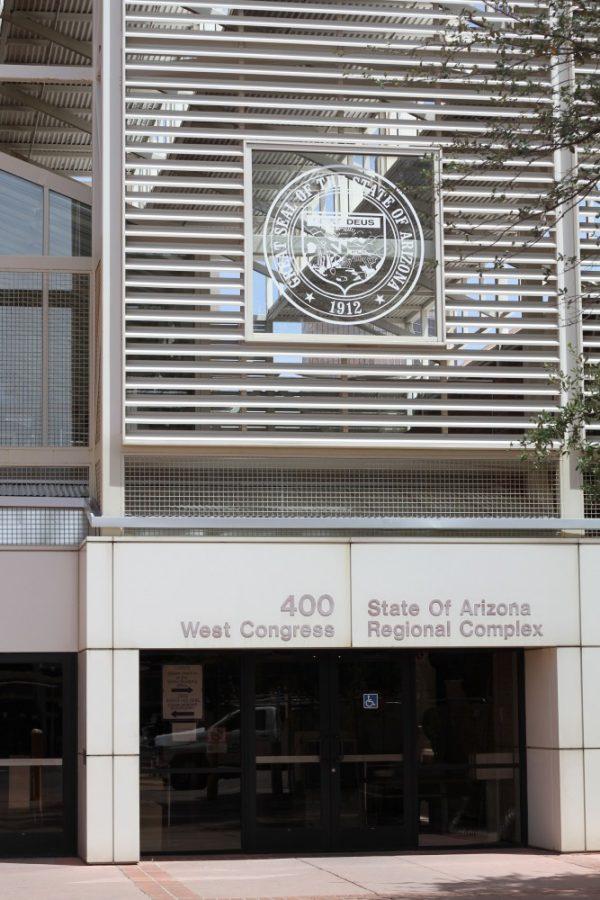After a checkered past, Rio Nuevo, a special taxing district in Tucson, is achieving success and increasing economic development and output in the community.
Rio Nuevo was formed following a 1999 ballot initiative to create a Tax Increment Financing district in Tucson. The district receives a portion of the transaction privilege taxes or sales tax collected within its district.
“Rio Nuevo’s district is largely downtown, but it also extends all the way out Broadway to Wilmot,” said Steve Kozachik, Tucson City Councilman for Ward Six.
According to a Rio Nuevo press release from Jan. 24, for every dollar their board spends, $10 is generated in economic activity for the Tucson community.
“The influx of major corporations coming to the downtown area has proven to be the catalyst for a live, work and play urban renewal,” said Fletcher McCusker, Chair of Rio Nuevo, in a press release announcing a 2016 deal with Caterpillar.
Yet, Rio Nuevo has not always had such success.
“The legislature almost abolished the district over accusations of mismanaging funds about a decade ago,” Kozachik said. “There was a couple hundred million dollars where people started to wonder where it went.”
After an investigation by the state auditor general, oversight of Rio Nuevo was transferred from the City of Tucson to the state legislature following the determination that funds were mismanaged.
RELATED: Cities and universities disagree over tax exemption in Ducey budget proposal
After an 18-month investigation involving the FBI, the state attorney general declined to bring criminal charges for the $250 million that was wasted, citing a 2010 Supreme Court decision that made prosecutions without proof of direct bribery or kickbacks more difficult.
During the investigation, the Arizona State Legislature reorganized Rio Nuevo, starting in 2009 with a strong majority vote. In 2010, a board was reappointed.
According to Kozachik, there is now a hard line in the sand separating the actions and deals of Rio Nuevo and the actions of the city.
The Governor, President of the Senate and Speaker of the House of Representatives are responsible for appointing board members to Rio Nuevo.
The current board consists of six members: besides the chair McCusker, there is Mark Irvin (secretary), Chris Sheafe (treasurer), Jannie Cox, Jeffrey Hill and Edmund Marquez.
“Under the current Rio Nuevo leadership and city leadership, we have a good and positive relationship,” Kozachik said.
McCusker is a graduate of the UA from the class of 1974, 2011 Alumni of the Year, and serves on two of the university’s boards, according to Rio Nuevo’s website.
“He is determined to celebrate a vibrant, world-class downtown,” the website reads. McCusker relocated his billion dollar company to Tucson and has since helped revitalize Tucson’s downtown.
Rio Nuevo has been able to help revitalize its district by working creatively, effectively and with transparency in cooperation with the city and businesses.
RELATED: Pima County strikes Monsanto tax deal incentive, company moves forward with site plan
“Rio Nuevo is in a position to come up with creative solutions which the city is not,” Kozachik said.
The city does not lend money or backstop loans in economic development projects.
“Rio Nuevo helps to provide gap funding in areas that may the private sector won’t yet, but Rio Nuevo is in a position to do it,” Kozachik said. “They help bridge financial needs of projects that because of the state of the economy and the challenges private lending sector still sees they are not really willing to step up yet.”
Rio Nuevo is only allowed by law to invest and sign development deals within its district. The goal of these deals is to increase economic activity and also sales tax in the district.
Part of this sales tax acts as a return on Rio Nuevo’s investment keeping them self-sustainable, but it also increases revenue to the state and the city, according to Kozachik.
“The City of Tucson is working with Rio Nuevo on a Caterpillar Surface and Mining complex and an AC Marriott Hotel,” Kozachik said.
Rio Nuevo recently announced a deal with Hexagon which secured the companies relocation into its downtown Tucson district. The deal involved $1.289 million of economic incentives for the Swedish company but is estimated to bring hundreds of jobs and have an economic impact of close to $250 million.
Caterpillar vice president with responsibility for Surface Mining and Technology, Tom Bluth, said in a press release, “Southern Arizona is a growing region known for a workforce rich in mining, technology and engineering expertise as well as an attractive quality of life for both families and young graduates.”
Rio Nuevo worked closely with Caterpillar to secure their investment in Tucson which is estimated to $900 million.
“The city of Tucson recently signed an agreement which gives Rio Nuevo an opportunity to repurpose some of the properties that would potentially be demolished on Broadway due to the widening of Euclid and Country Club,” Kozachik said.
In order to save small businesses who may be losing their access and parking, Rio Nuevo is in a position to buy up these businesses and selectively demolish some in order that others can survive with new parking and access, Kozachik said.
It is deals like these, that the city cannot make, that prove the new and transparent Rio Nuevo’s economic worth.
Follow Randall Eck on Twitter.









